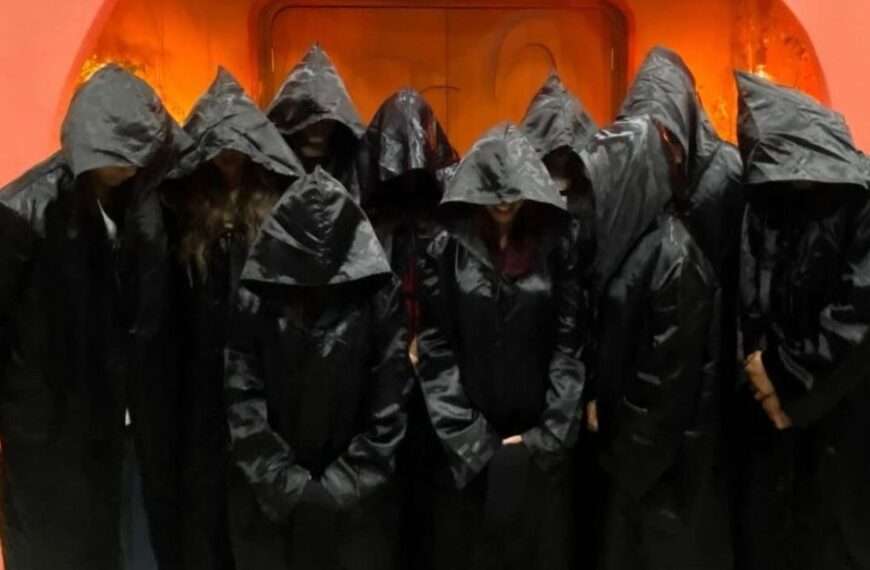Public health advocates sound alarm as illicit vape and tobacco trade reaches ‘crisis’ levels
MANILA, Philippines – The fight against illicit tobacco and vapor products in the Philippines is intensifying, with public health advocates now labeling the rampant smuggling as a “full-blown crisis” impacting not only government revenues but also the health of the nation, particularly its youth.
Following the Philippine Senate’s recent deliberations on proposals to raise excise taxes on these products amidst a surge in illicit trade, a prominent consumer advocacy group, Bantay Konsyumer, Kalsada, Kuryente (BK3), convened a virtual roundtable to underscore the dire consequences of the burgeoning black market.
During the online forum titled “Smuggling on the Rise: Bridging Policy Gaps in Combating Cigarette and Vape Smuggling” held on May 23, 2025, BK3 convenor Karen Sison presented alarming figures, revealing a sharp increase in smoking prevalence. “In just 2 years, the illicit tobacco trade has evolved into a full-blown crisis. Smoking prevalence rose sharply from 18.5 percent in 2021 to 23.2 percent in 2023,” Sison stated. She directly linked this rise to the availability of cheap, likely illegal, and unregulated products flooding the market.
BK3 emphasized that the illicit trade has become a complex public policy threat with far-reaching implications. Beyond distorting market dynamics and depriving the government of billions in excise tax revenues, the proliferation of substandard and unregulated products is contributing to a rise in youth smoking, emboldening criminal syndicates, and exposing critical governance gaps. Despite these severe consequences, the group stressed that this form of organized crime remains largely underestimated in national discourse.
The roundtable discussion served as a follow-up to the recent Senate Committee on Ways and Means hearing, chaired by Senator Sherwin Gatchalian, which focused on House Bill 11360. This bill aims to amend the National Internal Revenue Code by adjusting excise taxes on tobacco and vapor products to combat illicit trade and curb adolescent vaping.
Senator Gatchalian, in the earlier hearing, firmly asserted that tax adjustments, not reductions, are the solution to illicit trade. He highlighted the “very prevalent” smuggling of vaping products now “filtering down to our adolescent population.” House Bill 11360 proposes an initial tax of PHP41 per pack of heated tobacco (20 units) and PHP66.15 per milliliter of vapor products and cigarettes, with automatic escalation and a provision for presidential rate increases under certain deficit conditions. A key element is a single tax rate for all vapor products and an ad valorem tax on devices to deter youth consumption.
ALSO READ: Philippine Senate Weighs Higher Vape and Tobacco Taxes Amid Surge in Smuggling
However, the Senate hearing also exposed significant challenges in enforcement, with a dismal record of court decisions despite numerous seizures by the Bureau of Internal Revenue (BIR) and Bureau of Customs. Both Senator Gatchalian and Senator Pia Cayetano, a vocal opponent of any tax reduction on these products, stressed the need for enhanced enforcement capabilities, interagency coordination, and the adoption of advanced product tracking technologies.
Senator Cayetano, citing the dramatic surge in youth vaping from 3.2 percent in 2018 to 39.9 percent in 2023, attributed this “vapedemic” to the 2022 Vape Law, which she argued rolled back critical protections.
Industry representatives acknowledged the pervasive nature of the problem, estimating that 70 to 80 percent of vapor products in the market are illegal. The BIR, through Assistant Commissioner Jethro Sabariaga, proposed a “one government approach” and the creation of a dedicated illicit trade task force to combat the spread of unregulated and untaxed vapor products.
BIR Commissioner Romeo Lumagui Jr. has pledged intensified enforcement, declaring a “war for the welfare of Filipino teens” and the country’s future.
As the Senate continues to weigh House Bill 11360, the recent forum by BK3 reinforces the urgent call for comprehensive and robust measures to address the burgeoning illicit trade, emphasizing that public health and national welfare are at stake.









![[Balik Eskwela 2025] DepEd releases revised basic education enrollment policy for SY 2025-2026](https://asiabiznetwork.com/wp-content/uploads/2025/06/viber_image_2025-06-14_18-53-06-141-870x570.jpg)


![[EXCLUSIVE] Huge fire reported at Ricoa building in Mandaluyong, EDSA](https://asiabiznetwork.com/wp-content/uploads/2025/06/5-870x570.png)
